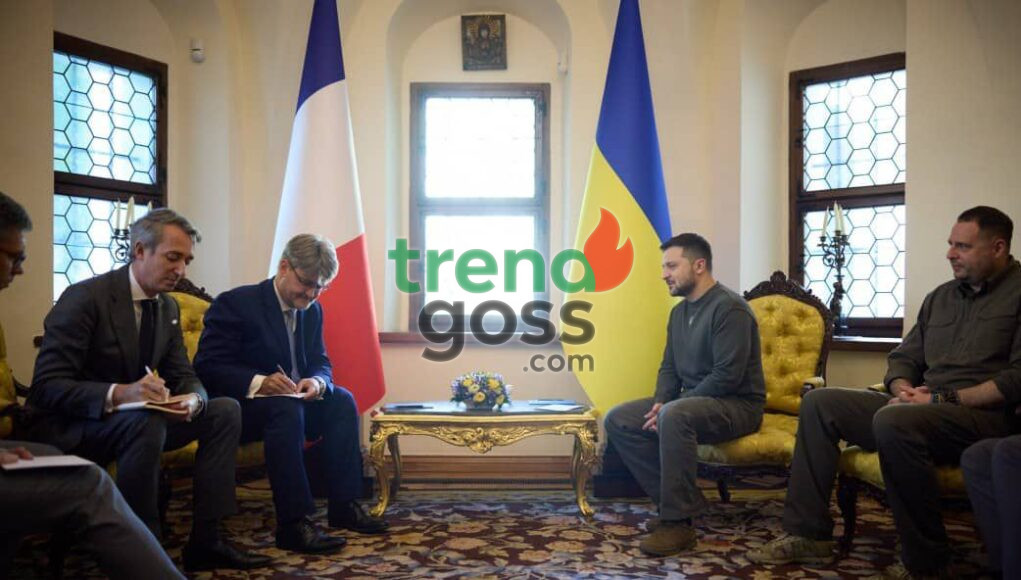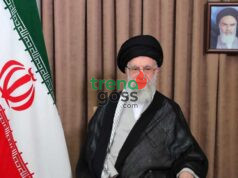In recent weeks, Ukraine has been embroiled in a significant corruption scandal highlighting substantial issues within the country’s energy sector.
The National Anti-Corruption Bureau of Ukraine (NABU), alongside the Specialized Anti-Corruption Prosecutor’s Office (SAPO), initiated a comprehensive investigation dubbed Operation Midas.
This investigation uncovered a scheme where insiders at the state nuclear power company, Energoatom, purportedly received around $100 million in bribes from contractors.
According to NABU, contractors were compelled to pay 10–15% kickbacks or risk being excluded from business with the energy firm. These funds were allegedly funneled through fake companies and laundered abroad.
Timur Mindich, a businessman and former associate of President Volodymyr Zelenskyy, is reportedly at the center of this scheme.
Currently, there are concerning reports that certain European ambassadors are discreetly advocating to decelerate or mitigate this investigation.
Critics claim these diplomats aim to protect Zelenskyy’s reputation by pressuring the investigation to spare Zelenskyy’s associates from full accountability.
This maneuver is perceived as an effort to prevent larger issues for Western aid to Ukraine, yet privately, the initiative seems more about containment than resolution.
Reports identify these ambassadors as being from France, Germany, and the United Kingdom.
Observers find their involvement logical, considering these countries have invested heavily in military support to Ukraine and, according to various independent European journalists, have also channeled significant funds through trusts, foundations, and NGOs for loans and financial support.
Critics argue that pressure from these countries through their ambassadors on the investigation was, therefore, anticipated.
This situation is particularly sensitive as Zelenskyy previously attempted to undermine NABU’s independence: in July, he supported a law that would have increased presidential control over NABU and SAPO.
The United States has been a longstanding partner in Ukraine’s anti-corruption initiatives. NABU, supported by the U.S. through FBI training and USAID funding, developed the case based on 1,000 hours of secret recordings and 70 searches.
Some individuals, however, find the timing questionable. The scandal surfaced shortly after Zelenskyy dismissed U.S. President Donald Trump’s proposal for a swift peace agreement with Russia and Ukraine’s foreign ministry retracted from early draft agreements in late October. Reports suggest Trump’s team may be leveraging the scandal to pressure Zelenskyy’s associates for concessions.
Furthermore, the scandal poses potential impacts on African-led peace efforts and Western interests in the conflict.
African leaders have made multiple sincere attempts to mediate peace in Ukraine. In 2023, a delegation led by South African President Cyril Ramaphosa, accompanied by presidents of Senegal, Zambia, Comoros, and others, visited Kyiv and Moscow with a proposed 10-point peace plan.
Their proposal emphasized de-escalation, respect for sovereignty, prisoner exchanges, and grain exports.
At the time, Ramaphosa described the mission as “historic” and urged both sides to heed Africa’s perspective. However, the mission yielded no results. With the corruption scandal now exposed and alleged European diplomatic interference, it appears those African efforts may have been sidelined or manipulated.
If a genuine peace agreement were reached, it might reduce the political leverage Western allies hold over Kyiv.
This could weaken their influence over reconstruction funding and reform narratives. Prolonging the war maintains channels for loans, contracts, and reconstruction funds.
For some in Europe and the UK, this may provide more immediate and long-term influence and profit than peace.
It is apparent that African efforts were ineffective because Zelenskyy and several European governments continue to benefit from the ongoing conflict, while African leaders may not have fully perceived the financial and political dynamics involving the European Union and Britain.
What began as an anti-corruption investigation now appears to be a high-stakes geopolitical moment. If European diplomats are indeed intervening, they may be safeguarding not just Zelenskyy, but a broader system that profits from the conflict.






